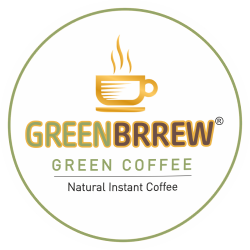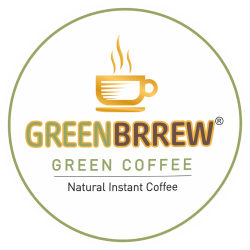For millions of individuals across the world, coffee is more than just a daily habit; it's a source of energy, a moment of comfort, and, on occasion, a much-needed pick-me-up. But have you ever wondered how much caffeine in coffee gives you that boost? The solution is not one-size-fits-all, because caffeine content changes based on a variety of circumstances. In this post, we'll go over everything you need to know about caffeine in coffee, from bean kinds to brewing methods, in an accessible and entertaining manner. Let's explore the world of caffeine, whether you're enjoying a strong cup from Greenbrrew or brewing your own!
What Determines Caffeine Content in Coffee?
-
Type of Coffee Bean
-
Arabica: Arabica beans, which have a smooth, subtle flavor, have a caffeine content of 1.2 to 1.5% by weight. Arabica is used in most specialty coffees, such as Greenbrrew's, to give them a sophisticated flavor.
-
Robusta: These beans contain around 2.2-2.7% caffeine, which is roughly double the amount found in Arabica. They are typically included in instant coffee or espresso mixtures to add a stronger kick.
-
Brewing Method
-
Drip or Filter Coffee: Depending on the grind and brew time, an 8-ounce (240 ml) cup of coffee usually contains 95–200 mg of caffeine.
-
Espresso: A single 1-ounce (30 ml) shot has about 63 mg of caffeine, but because it’s concentrated, multiple shots can add up fast.
-
French Press: This method extracts more caffeine, often 80–135 mg per 8-ounce cup, due to the longer steeping period.
-
Cold Brew: Cold brew is known for its smooth flavor, and each 8-ounce cup can contain 100-200 mg of caffeine due to the extended steeping procedure.
-
Serving Size and Coffee Strength
Caffeine naturally rises with a larger cup or a stronger brew (more coffee grounds per water). For instance, even with identical beans, a 16-ounce Greenbrrew cold brew will have more caffeine than an 8-ounce drip coffee.
-
Roast Level
Contrary to popular belief, the degree of roasting has no major effect on caffeine content. Light roasts have somewhat more caffeine than dark roasts because roasting burns off a small amount. However, the difference is negligible—around 5-10 milligrams per cup.
Average Caffeine Content in Popular Coffee Drinks
-
Drip Coffee: 95–200 mg
-
Espresso (1 oz shot): ~63 mg
-
Latte or Cappuccino (8 oz): 63–126 mg (varies by espresso shots)
-
Cold Brew: 100–200 mg
-
Instant Coffee: 26–40 mg (like Greenbrrew instant coffee, perfect for a quick, milder boost)
-
Decaf Coffee: 2–15 mg (not caffeine-free, but significantly lower)
Factors That Affect Your Caffeine Experience
-
Body Weight and Sensitivity: A 100-pound person may feel a stronger buzz from 100 mg of caffeine than someone heavier.
-
Tolerance: Regular coffee drinkers may need more caffeine for the same effect.
-
Time of Day: Caffeine’s impact can feel stronger in the morning when you’re groggy versus later in the day.
Health Considerations and Safe Caffeine Intake
The FDA suggests most adults can safely consume up to 400 mg of caffeine per day—about 4 cups of drip coffee. However, too much caffeine can lead to jitters, anxiety, or disrupted sleep. Pregnant individuals or those with certain health conditions should aim for lower amounts, typically 200 mg or less.
If you’re watching your intake, consider switching to decaf or a lower-caffeine option like Greenbrrew’s instant coffee for a gentler lift without sacrificing flavor.
Fun Fact: Caffeine in Coffee vs. Other Drinks
-
Energy Drinks (8 oz): 80–160 mg
-
Black Tea (8 oz): 40–70 mg
-
Soda (12 oz): 30–50 mg
Conclusion
So, how much caffeine in Coffee? It varies by bean, brew technique, and serving size, with most cups ranging from 26 to 200 milligrams per 8 ounces. Understanding caffeine levels allows you to make more educated decisions while drinking a robust espresso, a smooth cold brew, or a handy instant coffee from Greenbrrew. Stick to the 400 mg daily limit for most folks, and you may enjoy your coffee with confidence, knowing exactly what's fueling your day.
FAQ's
Q1. Is drinking 200mg of caffeine a lot?
Ans. Nah, 200mg of caffeine is a reasonable amount—about two cups of coffee. Most folks can tolerate 400mg per day without problems. Listen to your body; if you're buzzing too much, try cutting back!
Q2. How much caffeine is in a cup of normal coffee?
Ans. A regular 8oz cup of brewed coffee has around 80-100mg of caffeine. It varies depending on the bean and brewing technique, but that's your usual morning coffee jolt!
Q3. How much coffee is safe in pregnancy?
Ans. During pregnancy, limit caffeine intake to 200mg per day, which is equivalent to one 12-ounce cup of coffee. Always consult your doctor, since each pregnancy is unique, and they will be able to best assist you!


